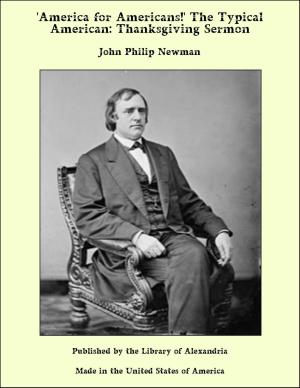Voyages in the Northern Pacific
Nonfiction, Religion & Spirituality, New Age, History, Fiction & Literature| Author: | Peter Corney | ISBN: | 9781465612519 |
| Publisher: | Library of Alexandria | Publication: | March 8, 2015 |
| Imprint: | Language: | English |
| Author: | Peter Corney |
| ISBN: | 9781465612519 |
| Publisher: | Library of Alexandria |
| Publication: | March 8, 2015 |
| Imprint: | |
| Language: | English |
THE ship Tonquin, belonging to John Jacob Astor, left Boston about the year 1811, with settlers, for the purpose of forming an establishment on the Columbia River. On their passage out, they touched at the Sandwich Islands to fill up their water casks, and procure a supply of provisions. Captain Thorne encountered considerable difficulties from the disposition which his ship's company evinced to leave the vessel at these islands, and was even obliged to get the settlers to keep watch over them to prevent desertion: the boatswain, Peter Anderson, by some means, however, eluded the guard and escaped to the shore. The Tonquin arrived off the mouth of the Columbia in March, 1811. Captain Thorne not being acquainted with the harbor, dispatched a whale-boat, with an officer and six men, to sound the passage over the bar into the river. The ship was then under close reefed top-sails, and a strong gale blowing from the north-west, so that the first officer was much averse to going on this service; and it is rather singular, that previous to his leaving the Tonquin, he observed to Mr. McDougal, who was to be the governor of the establishment, that he was going to lay his bones beside those of his uncle, who had perished in crossing the bar of the Columbia river a year or two before that time. In a quarter of an hour after they left the ship, they hoisted a signal of distress, and then disappeared—thus seven men found a watery grave! The Tonquin stood out to sea for the night, and in the morning again stood in, and another boat was ordered off under the command of the second officer Mr. Moffat, who peremptorily refused to go, observing, that he could see a passage better from the mast head. Captain Thorne then ordered a man, who was to have the command of a shallop (of which they had the frame on board), to take the command of the boat, with two Sandwich Islanders (several of whom they had on board for the establishment), the ship's blacksmith, and one sailor, Mr. McDougal having refused to let any of the settlers go on that service which they looked on as little better than an act of insanity. Shortly after the boat had left the ship, she ran by it; the boat was then so close that the people asked for a rope; but the vessel herself was in so perilous a situation, that all on board had to attend to their own safety. She struck several times on the bar, and the sea made a fair breach over her; but they at length got under the north point, into Baker's bay. On the following day they saw a white man on the rocks, in the bay. Captain Thorne dispatched a boat, which returned with the blacksmith, who had been in the second boat sent to sound the channel. The account he gave of himself was, that shortly after the ship had passed them, the boat swamped; that the master of the shallop and the sailor were drowned, and that he was saved by the exertions of the Sandwich Islanders, who had dived several times to clear him of the lead line which was entangled round his legs.
THE ship Tonquin, belonging to John Jacob Astor, left Boston about the year 1811, with settlers, for the purpose of forming an establishment on the Columbia River. On their passage out, they touched at the Sandwich Islands to fill up their water casks, and procure a supply of provisions. Captain Thorne encountered considerable difficulties from the disposition which his ship's company evinced to leave the vessel at these islands, and was even obliged to get the settlers to keep watch over them to prevent desertion: the boatswain, Peter Anderson, by some means, however, eluded the guard and escaped to the shore. The Tonquin arrived off the mouth of the Columbia in March, 1811. Captain Thorne not being acquainted with the harbor, dispatched a whale-boat, with an officer and six men, to sound the passage over the bar into the river. The ship was then under close reefed top-sails, and a strong gale blowing from the north-west, so that the first officer was much averse to going on this service; and it is rather singular, that previous to his leaving the Tonquin, he observed to Mr. McDougal, who was to be the governor of the establishment, that he was going to lay his bones beside those of his uncle, who had perished in crossing the bar of the Columbia river a year or two before that time. In a quarter of an hour after they left the ship, they hoisted a signal of distress, and then disappeared—thus seven men found a watery grave! The Tonquin stood out to sea for the night, and in the morning again stood in, and another boat was ordered off under the command of the second officer Mr. Moffat, who peremptorily refused to go, observing, that he could see a passage better from the mast head. Captain Thorne then ordered a man, who was to have the command of a shallop (of which they had the frame on board), to take the command of the boat, with two Sandwich Islanders (several of whom they had on board for the establishment), the ship's blacksmith, and one sailor, Mr. McDougal having refused to let any of the settlers go on that service which they looked on as little better than an act of insanity. Shortly after the boat had left the ship, she ran by it; the boat was then so close that the people asked for a rope; but the vessel herself was in so perilous a situation, that all on board had to attend to their own safety. She struck several times on the bar, and the sea made a fair breach over her; but they at length got under the north point, into Baker's bay. On the following day they saw a white man on the rocks, in the bay. Captain Thorne dispatched a boat, which returned with the blacksmith, who had been in the second boat sent to sound the channel. The account he gave of himself was, that shortly after the ship had passed them, the boat swamped; that the master of the shallop and the sailor were drowned, and that he was saved by the exertions of the Sandwich Islanders, who had dived several times to clear him of the lead line which was entangled round his legs.















